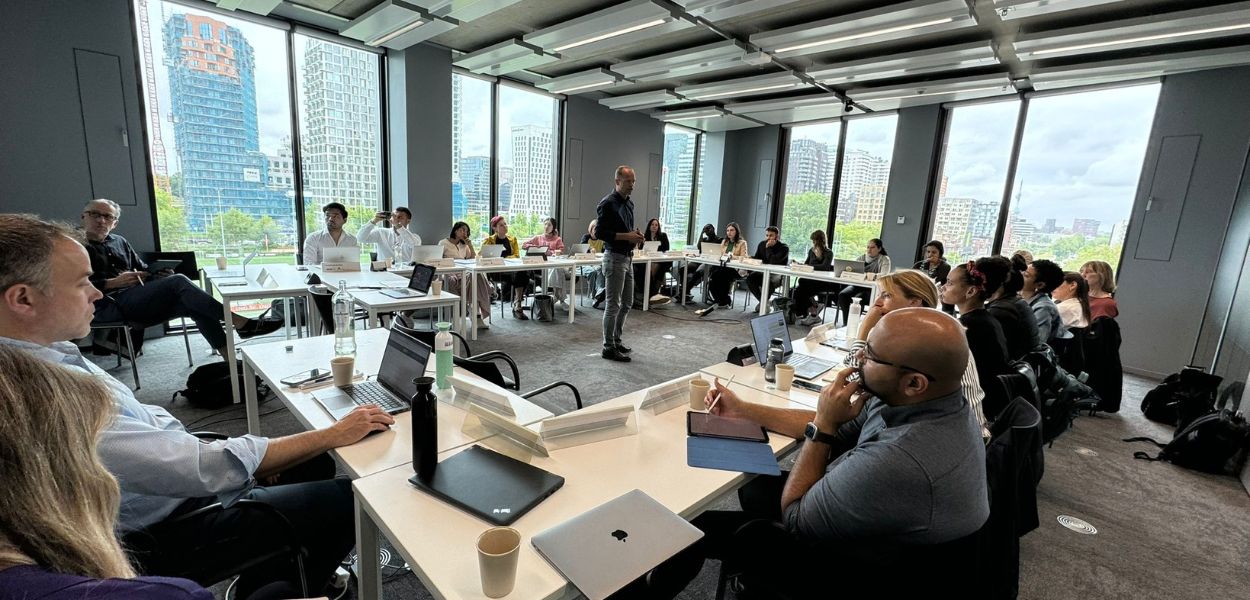For the third year, the Theorizing Data and AI workshop offered a platform to reflect on the evolving role of data and AI in organizations and society. Discussions highlighted how AI is reshaping work roles and strategies, while raising pressing questions about responsible governance and social impact. On the data side, participants emphasized data quality and the critical role of data practices in shaping knowledge systems.
The workshop opened with a compelling talk by Mike Power, who challenged the audience to rethink the relationship between traces and data. He warned that algorithmic processes are eroding traceability and human oversight in data-driven systems.
Lauren Waardenburg’s keynote on “nothingness” invited the audience to consider the challenge of evaluating preventive AI systems—like those designed to predict crime—where success is defined by what doesn’t happen. Measuring the absence of events, she showed, is far more complex than it seems.
In a keynote laced with Bob Dylan references—"It’s all over now, Baby Blue"—Youngjin Yoo delivered a call to action for IS scholars. As generative machines move from syntactic to semantic processing, he urged the field to “learn new songs” and rethink engagement with AI. The challenge: transform a disembodied knowledge space into a collective commons that sparks creativity and shared meaning.
Ella Hafermalz struck both cautionary and hopeful notes. GenAI tools like ChatGPT are becoming more accessible and user-friendly, and the way we use them will shape their impact. They can enable access to communities of practice by offering practical advice on the go. Yet this democratization also carries hidden risks — for example, through commercialization and persuasion. Governance will be very important in the coming years. On the other hand, an overemphasis on productivity and efficiency may lead to unintended, even absurd outcomes: if we make writing emails easier, there will be more emails.
KIN researchers and members of the AI@Work research group shared ongoing work during the roundtables:
- Reza M. Baygi & Marleen Huysman discussed how GenAI reshapes the social fabric of organizations by transforming interaction, collaboration, and network navigation.
- Tomislav Karačić highlighted how machine learning tools overlook domain expertise, using a case on biotech cucumber breeding.
- Katharina Cepa showed how data draws and directs managerial attention differently across hierarchical levels, revealing differing patterns of engagement.
- Julia Christis shared a working paper on leveraging data commons and IoT data in citizen science initiatives to foster healthier, more sustainable communities.
- Lorna Downie analyzed how “ground truthing” practices hold predictive systems accountable, drawing on a case from elite sports.
- Stella Pachidi investigated how algorithmic control is shaped at the design stage, focusing on how organizations embed values before coding even begins.
- Tamara Thuis explored how technological platforms shape efforts to govern AI implementation responsibly.
The workshop fostered a shared understanding of data and AI and served as a valuable platform for PhD candidates and early-stage researchers to share work-in-progress papers and collectively advance the field.
The workshop was co-organized by the KIN Center for Digital Innovation and ESSEC Business School.
Thanks to the organizing team —Christina Alaimo, Lauren Waardenburg, Nekky Dux, Domenico di Prisco, Sybil Liu, and Marleen Huysman—for creating an engaging and generative environment for exchange.
